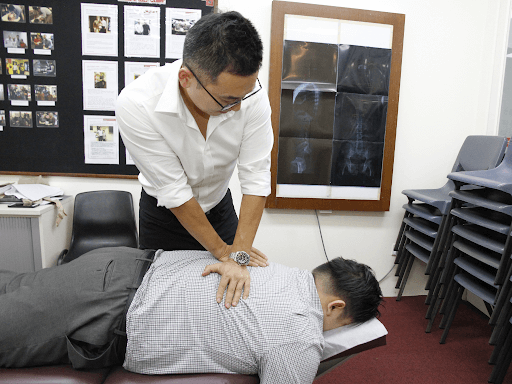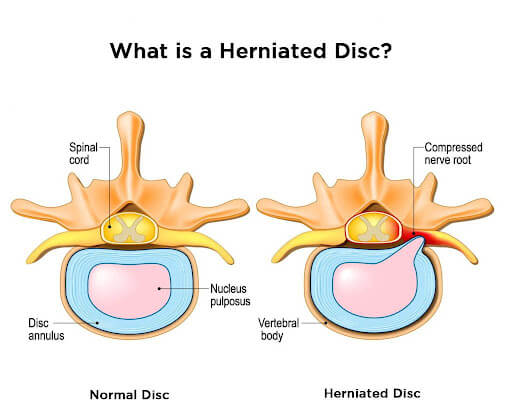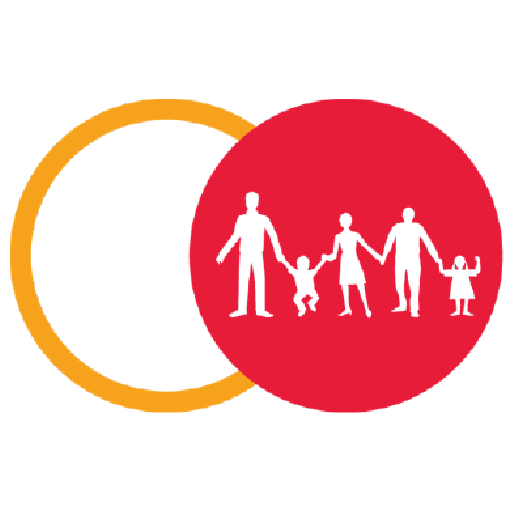
The spinal canal has limited space, which is inadequate for the spinal nerve and the displaced herniated disc fragment. Due to this displacement, the disc presses on spinal nerves, often producing pain, which may be severe.

Symptoms (e.g. pain in the neck, or numbness or tingling in the arms, legs, feet or buttocks) often subside or disappear after a few weeks, but if they continue or worsen, surgery may be necessary. Though herniated discs can lead to excruciating agony, the good news is they are also treatable.
In this article, we discuss the 3 common ways that herniated discs occur, and how chiropractic treatments can help alleviate the pain.

Our backs support and disperse our pressure, and the intervertebral discs in our spine are designed to cushion movement impact. When we go about our daily activities such as sitting, standing, walking or even sleeping for long hours, we typically forget about our posture. Overtime, bad posture can cause unnecessary load and stress in our spine and disc, leading to early wear and tear.
Another possibility is that your disc has eroded to the point that even a seemingly non-traumatic occurrence might result in a herniated disc. The abrupt power of a sneeze can herniate a disc if you already have a weak disc, even though it may not seem like a dramatic occurrence that could cause harm.
Typical signs include:
- When a herniated disc pushes on the spinal cord or nerves that leave the cord, numbness and tingling may result. Strange feelings might radiate along the nerve and into the arms or legs.
- Weak muscles: When a herniated disc pushes on a nerve, the surrounding muscles could become weakened, resulting in a wobbly gait.
- Pain: Usually felt in the back, although it can also spread to the limbs. The sensation is frequently described by people as scorching or acute.
In some cases, a person with a herniated disc may not experience any symptoms at all.

Bed rest, painkillers and steroid injections are frequently used to treat disc problems, however these methods only provide temporary pain relief without directly resolving the herniated disc. Another option would be surgery or rigorous physical therapy. On the other hand, spinal manipulation with chiropractic is a non-invasive, drug-free therapy alternative that targets the root of your discomfort.
Following your session, your chiropractor will probably tell you to consume a lot of fluids to assist in the therapy process. You could also undergo some medical massage treatment, depending on your health.
Chiropractic therapy can relieve your unpleasant symptoms so that surgery, medications, and other forms of treatment are no longer necessary. Although it cannot cure herniation (only surgery can accomplish that), it can help you avoid surgery.
Chiropractic care is a non-invasive, drug-free medical specialty that seeks to cure the underlying cause of your pain and suffering rather than only treating the symptoms.
Our spine and nerve specialists can treat all these issues, which include headaches, neck discomfort, muscular pain, and lower back pain. We focus on detecting the root of the problem, structural corrections and possibly permanently reversing the problem.


